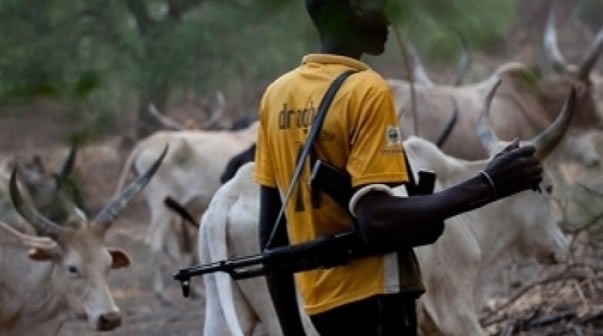
WASHINGTON, D.C—FOR the past two weeks, the Christian farming community in Agatu Local Government Area (LGA) in Benue State, has experienced hell on earth. From February 22 to 24, radical Islamist Fulani herder militias have invaded the county, wildly sacking whole villages destroying homes and farmlands, and murdering hundreds.
Though some Nigerian news media outlets reported death tolls between 140 and 150, sources close to the situation in Benue told International Christian Concern (ICC) that close to 300 were actually killed, while as many as 7,000 were displaced. According to local sources, the assault continues unabated, despite President Muhammadu Buhari’s launch of an official investigation on Monday looking into the crisis.
Villages attacked include Akwu, Adogbo, Ayilla, Ogboju, Okokolo, Abugba, among several others. Benue State Police Commissioner Paul Yakadi told the Nigerian newspaper, Vanguard, that the Fulani attackers came from nearby areas.
Advertisement
“The worrisome renewed attack on the Agatu communities by Fulani herdsmen was as a result of the alarming influx of the herdsmen into the area through neighboring towns of Naka in Gwer West local government area of Benue State, Loco and Doma of Nasarawa State, where cattle are made to swim across the water to Agatu,” he said.
“The Command, which was on an assessment tour of the area few days ago to identify areas that security needed to be beefed up, discovered Fulani herdsmen armed with sophisticated weapons with their cows numbering over 5,000,” he added.
According to local reports, Agatu villagers rejoiced at the news of the government investigation, but still, the bloodshed continues. Christians persevering in persecution Since 2001, Christian farming communities across central Nigeria continue to suffer this horrific scale of persecution, and few voices are speaking out.
The crisis affects areas of as many as seven states in the region known as the “Middle-Belt,” but the most concentrated attacks have ravaged local government areas in Plateau and Benue states that carry Christian majorities. While Boko Haram rightly grabs headlines for the brutal persecution that they have inflicted upon the Church in Nigeria, Middle-Belt Christian farmers and churches suffer each day feeling like they wear a target on their backs.
Advertisement
Overwhelmed by grief, a Benue pastor, Adanu, told ICC on Monday, “Even today the militia went to another village and killed 16 people. There has to be an end to this carnage!” And yet, despite the ongoing crisis, Christians in Agatu are persevering, “Middle Belt Christians are becoming [an] endangered species, but, sincerely, our God is able. Let’s get praying and working,” an Agatu resident told ICC.
The experience for survivors constantly shifts between fear and hope for the future. While body counts from the violence become the focus of our collective consciousness, thousands of displaced persons are left figuring out how to survive another day. Agatu villagers are flocking to the Benue city of Otukpo in droves.
“Some of these people fled their homes without a pin. Life is unbearable for Agatu victims within Otukpo and the surrounding communities,” a local resident told ICC. The past week has seen Benue suffer greatly at the hands of the Fulani militias.
However, the immediate crisis only brings into focus the larger tragedy that Christians in the state, and across the Middle-Belt, have endured for far longer than when the media and government acknowledged the issue this past week. According to ICC’s Nigeria staffer, from 2012 to 2013, a series of coordinated massive Fulani invasions of Agatu communities caused similar devastation, resulting in more than 50,000 people displaced.
“Time has come for President Buhari and his government to end the bloodshed in Middle-Belt Nigeria. The horrific tragedy ongoing in Benue simply serves to illustrate the dire need for immediate action to prevent Nigerian Christian farming communities from disappearing off the map.
Advertisement
“The prevailing narratives that focus on historical tribal struggle, turf, and resource wars no longer serve as acceptable explanations for this scale of bloodshed. While global news outlets clamor to cover the Boko Haram crisis, a more statistically significant and systematic assault on Nigerian Christians rages on without slowing down.
The recent events in Benue should wake policymakers up to the urgency to act to protect lives and give voice to the voiceless suffering these atrocities,” Troy Augustine, ICC’s Regional Manager for Africa, said.


